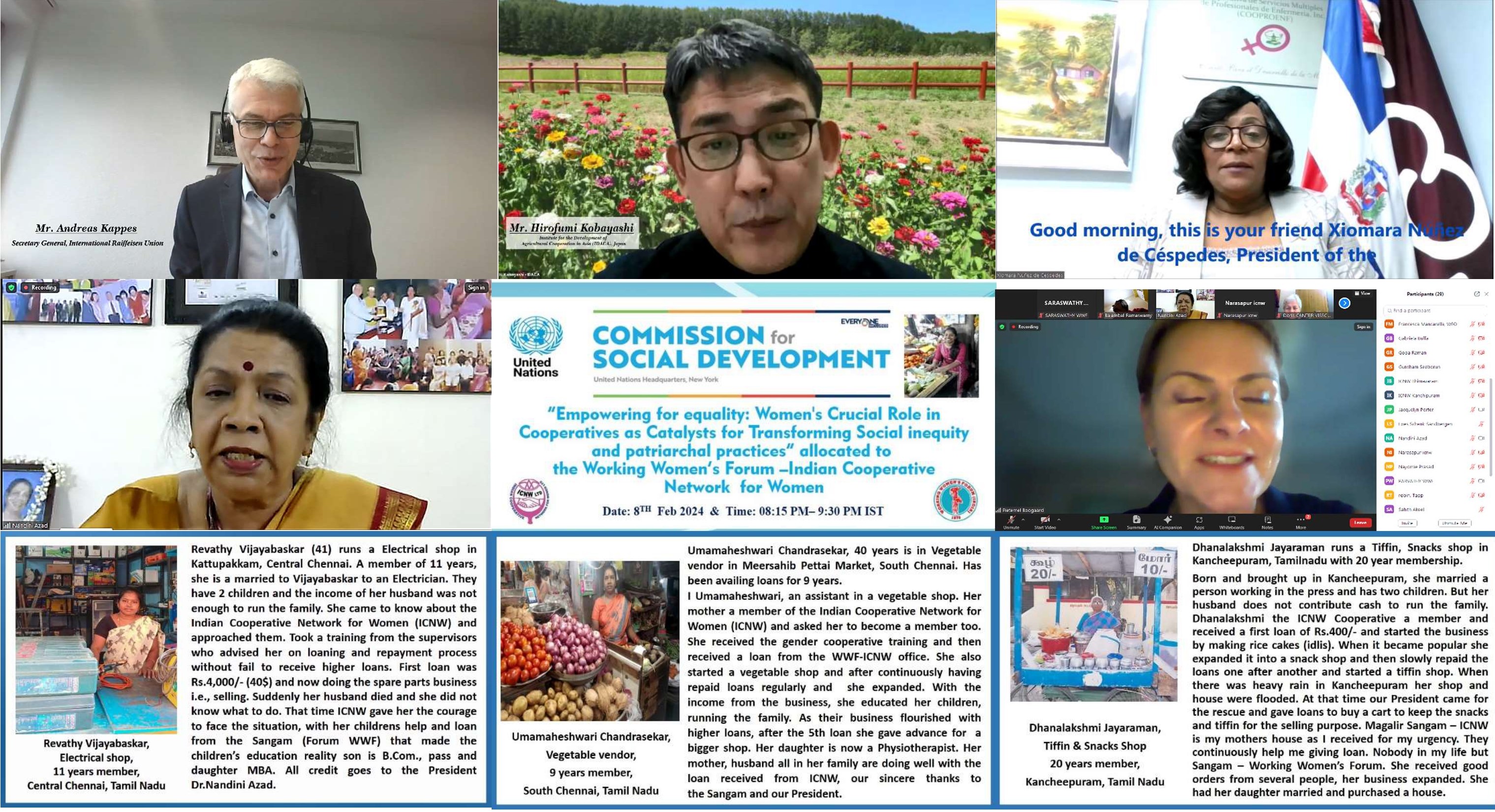
8 February 2024, CSocD62 Side Event organized by WWF-ICNW in Chennai, India: Ms. Nandini Azad, President, Working Women’s Forum (India) and Indian Cooperative Network for Women, India welcomed participants from several continents. “This event is a platform for global stakeholders particularly women farmers, organisations to share their successful models, advocate for gender equality in agriculture, and contribute to the global agenda of sustainable development (including climate change). The focus on inclusive family farming structures and empowering women farmers is crucial for achieving long-term prosperity in rural communities worldwide.”
The Working Women’s Forum and Indian Cooperative Network for Women H.Q., its CEO’s, and I President Dr.Nandini Azad (WWF-ICNW) welcome and connected with all of the participants, from 40 countries, panellists and 300 grassroots women workers in India watching from several States of India namely Tamilnadu/Karnataka/Andhra Pradesh/ Telangana. Having reached 6,20,000 women in 270 trades in 13 branches of South India.
“Cooperatives systematically conduct their education and the awareness programmes contain a provision focused on prevention of domestic violence and gender violence at work,” she said.
Andreas Kappes, Secretary general, International Raiffeisen Union, Germany, said cooperatives serve as a network for women to connect and join forces as well as a platform for them to engage in economic activities and build financial resilience and enhance their leadership skills.
Hirofumi Kobayashi, executive director, Institute for the Development of Agricultural Cooperation in Asia and Japan, Africa etc. Focusing on training is very important alongwith credit provision he concluded with a best practice module and tabular tool for above.
Pieternel Boogaard, head, FMO, agribusiness, Netherlands, said evidence shows that ‘gender neutral’ approaches are ineffective in reducing gender inequalities and can even exacerbate pre-existing inequalities, or at least perpetuate current differences. Therefore, gender sensitive solutions, such as improved access to finance, training, business development services and technical support, are important tools in promoting gender equality. ‘It is FMO’s aim to actively contribute to reducing inequalities by, amongst other things, actively seeking investment opportunities that positively contribute to the full inclusion of women in economic, social and public life’.
Cooperatives have made meaningful contributions across the world to fight violence against women and girls, systematically educating them, Xiomara Nunez De Cespedes, President, Gender Equality Committee of the International Cooperative Alliance, said.
The H.S. Jaya Arunachalam Awards for Excellence were announced and nine women entrepreneurs from Tamil Nadu, Karnataka and Andhra Pradesh have been chosen this year by the Working Women’s Forum (India) and the Indian Cooperative Network for Women.
Dr. Azad continued today the WWF-ICNW’s clout and its rise to global leadership wherein in 44 years they were key players on global high tables of policy with their voices and issues of informal sector women heard in all U.N. Cooperative forums, networks. Today all major networks have joined us, including male leaders informed to end patriarchal practices.
For more information about the 62nd Commission for Social Development (CSocD62), please visit: https://social.desa.un.org/csocd/62nd
Source: WWF-ICNW
 Welcome to the United Nations
Welcome to the United Nations